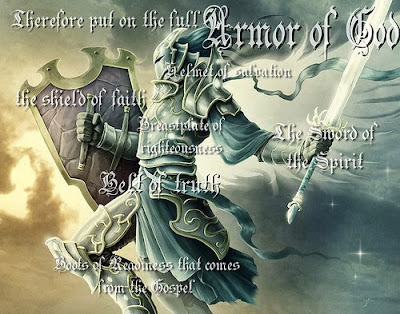Don't Despise the Day of Small Things
by Dr. Ralph F. WilsonI remember the excitement in my boyhood neighborhood when somebody began to build a large home on a vacant lot at the end of our street. A concrete truck rolled up to pour foundations, and for several days we could hear the sound of vigorous pounding as carpenters framed the walls. Then everybody left. I never knew why. Not another nail was pounded. The frame stood winter and summer--as long as I lived there--a house of sticks and little more.
Some of God's projects stall, too. Five centuries before Jesus was born, the Israelites returned from exile to find Jerusalem in ruins and their beloved temple destroyed. With great enthusiasm they set about rebuilding it. However, Zerubbabel the governor, got little farther than laying the foundation before opposition set in. Neighbors fought the project tooth and nail, finally succeeding in getting a restraining order to halt construction (Ezra 4). Enemies mocked. Supporters became discouraged. For years the site stood silent.
Failure. Zerubbabel felt like a failure. Oh, there were plenty of other things to do. Zerubbabel set to work building his own wood-paneled home. But his grand dream had fizzled.
He was probably like the rest of us when failure looms. What little self-confidence we have ebbs away. We seal ourselves from more pain by denial. We meet further effort with skepticism. We protect ourselves from getting our hopes too high again. We look at the ground rather than the sky, at the past rather than the future.
And then one day a man of God, Zechariah, began to speak words that pierced Zerubbabel to the heart and filled him with fresh hope: "This is the word of the Lord to Zerubbabel," came the message. "Not by might nor by power, but by my Spirit, says the Lord Almighty." Zerubbabel could feel his heart pounding as the message continued. "What are you, O mighty mountain? Before Zerubbabel you will become level ground. Then he will bring out the capstone to shouts of 'God bless it! God bless it!' The hands of Zerubbabel have laid the foundation of this temple, his hands will also complete it" (Zechariah 4:6-7).
The project had seemed like an immovable mountain, Zerubbabel thought. But now with God at work he knew he could finish the temple.
The final words of the prophecy jolted him. "Do not despise the day of small things. Men will rejoice when they see the plumb line in the hand of Zerubbabel" (vs. 10).
He had despised that early start. How weak, how insignificant, how naive he had been. Yet, in spite of all that, God had been in those beginnings.
How often our efforts for God are attacked by the enemy. We can get so discouraged we don't even want to try again. But God delights in taking the insignificant and making something out of it. Down through history we can see the pattern:
- Moses' rod that delivered a nation from Egypt (Exodus 4:1-9),
- The jawbone of an ass that in Samson's hand killed a thousand Philistines (Judges 15:14-16),
- Five smooth stones that felled the giant Goliath (1 Samuel 17),
- The handful of meal and a jar of oil that sustained a widow through years of famine (2 Kings 4:1-7),
- Five barley loaves and a couple fish that fed a multitude (Matthew 14:13-21), and
- The mustard seed Jesus said would become a great tree for birds to find shelter (Matthew 13:31-32).
"Not by might, not by power, but my Spirit says the Lord Almighty" (Zechariah 4:6). Oh, by the way. When I went back to my old neighborhood, someone had finished that house at the end of the street. It's beautiful.
-









.jpg)








 Facts and figures (the right ones!) usually impress people. When thousands of people show up to listen to a well-known preacher or a singer at events, many call it a roaring success. Well, I’m not against large crowds attending religious events or church services, but when attendance becomes the definition for success in Christianity, we are in serious trouble.
Facts and figures (the right ones!) usually impress people. When thousands of people show up to listen to a well-known preacher or a singer at events, many call it a roaring success. Well, I’m not against large crowds attending religious events or church services, but when attendance becomes the definition for success in Christianity, we are in serious trouble.